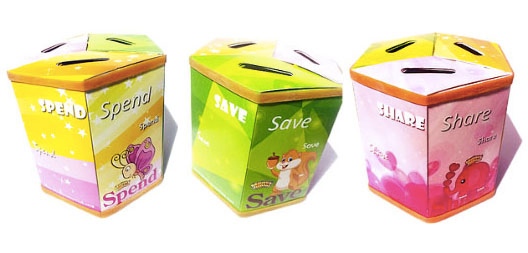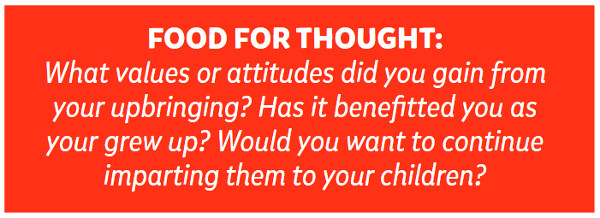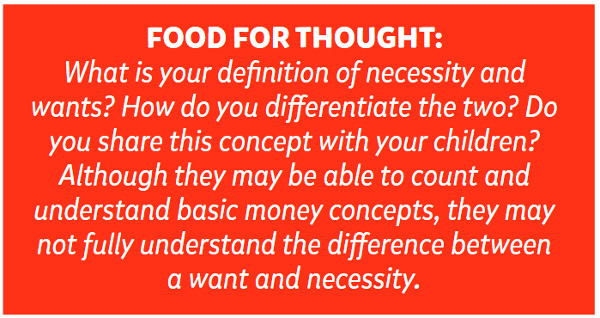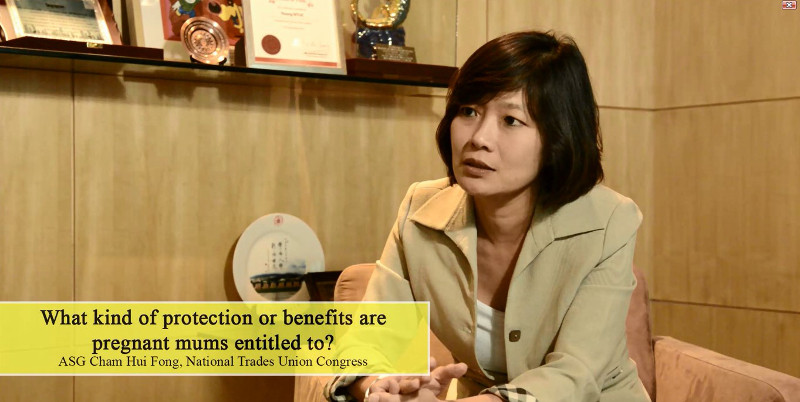In the first part of ‘Raising A Money-Smart Child’ E-book series, TNAP speaks to Ms. Jovin Tan, Wealth Management Advisor. As a young mother of two, Jovin shares her insights on how we can influence our children to be financially smart.
Part 1: Starting With The Right Attitude
When does a child start to form financial habits?
A study by Cambridge University suggests that most children are able to grasp basic money concepts and form “core behaviours” by age seven. It theorised that a child’s ability to manage complex financial and other issues were greatly influenced by their early experiences provided by their parents. Experiences such as learning how to plan ahead, how to reflect, and how to regulate their emotions. These played a major role in encouraging constructive financial behaviour as children grow up.
“Do not underestimate the effects of your money habits on your children,” adds Jovin Tan, a Wealth Management Advisor and mother of two young children from Singapore. Ms Tan, 29, who is married to a guitar trainer, believes every parent can influence their children about money in a positive manner.
“Our view and beliefs on money can and will influence our child’s view of money as they grow older. Through their day-to-day interactions with us and other adults, through their observations of adults interacting with each other; these experiences are subconsciously ingrained into their mind.”
But before we can influence our children, parents have to be clear of their own values and attitudes. With eight years of experience in helping individuals manage and utilise their wealth, Jovin shares her insights.
We have to be aware of our own view, speech and actions
Do not underestimate your child’s ability to learn and imitate. Children from as young as 3-years-old can grasp money concepts such as saving and spending. By observing you and the adults around them, they can pick up how money is handled within the family, and learn what adults consider as important. Regardless of whether you consciously teach your child about these values, they will come to their own conclusions based on their observations and experiences. Gradually, they will start to form their own money value system.
You can get a set of money jars here.

There is no benchmark or one right view
Every individual’s upbringing is different, so it’s hard to pinpoint or set a benchmark on what is considered a healthy view towards money. Money empowers individuals, it can also disempower others. I believe in exercising a level of contentment; to be happy and satisfied with what I currently have and making the most out of it.
Your childhood and upbringing
Generally, we impart values based on what our own parents have taught us, and from our environment. Recall your childhood days. How did your parents teach you about money? Were you taught to save your pocket money, spend it, or share part of it?
Then think about the environment you grew up in. Were there times when your parents had money problems and you often heard them argue about it? Were they open about their financial struggles with you, or did they hide it? Were you pampered by your parents and showered with toys and overseas holiday travels?
As a Wealth Management Advisor, many parents share with me they want to give their child a better life than they had, due to poverty they experienced as a child. So they lavish their children with material goods and experiences. Although the intention is out of love, doing so may impart another set of values.
This can hinder a child’s experience to be financially responsible and savvy. For example, by giving your child whatever he or she desires without teaching them the value of money, may give them an impression that what they want is always easily obtainable.

Rich VS Poor, Necessity VS Luxury
To me, the definition of ‘rich’ goes beyond dollars and cents. Being ‘rich’ is to have enough to get by healthily and happily, and to see the smiles of people I care and love. My definition of ‘poor’ is not being able to afford the basic necessities of life.
What do I consider as a necessity? It is something that keeps me alive, while a want is something that is good to have. For example, the purpose of pocket money is so that our children have some money to buy food in school to ease their hunger. Unfortunately, many children I know would spend their pocket money at the school’s stationary shop instead.

Indulge in your personal interest, but within your means
Think about your own views of money and financial practices before imparting them to your little one. Do you practice what you preach? Has you view towards money changed after becoming a parent? Perhaps the only change for me is my spending, which is now catered to the needs of my children. But even though my status in life has changed (from single, to being married, to becoming a mother), I still have a life to live.
Every individual deserves the right to indulge in their life’s pleasure. But this has to be done within their means, coupled with proper allocation of their funds and budgeting.
I manage my monthly income by dividing them into 6 money jars – Financial Freedom Jar, Education Jar, Play Jar, Necessity Jar, Long-term Savings and Giving Jar. You can read more about my money jar allocation here.
Be on the same page with your spouse
It will be tough to bring the same message to your child if you and your spouse are not aligned. Speak to your spouse about your financial values attitudes. Do you both agree or share the same core values and attitudes?
My husband and I talked about ours even before our eldest child was born as we were both brought up very differently. My husband’s parents took on the supporting approach; where they provided financial aid for him as far as their ability permits. For myself, my parents took the approach of teaching me how to fish, rather than giving me the fish.
Both of us discussed and felt that each approach has its pro and cons. We came to a comprise by adapting and including practices from both sides which we feel would work best for our family.
We are our children’s number one role model
Be mindful and watchful of your speech and behaviour because our children are always watching and listening. Often, it is the subconscious things we do that they see and hear. There is no right or wrong, or the best approach when it comes to teaching your children about money. Adopt what you and your spouse feel is best and most importantly, never compare your child with others. Each child is a precious gift with its own unique qualities.
This is the first part of our E-book series ‘How To Raise A Money-Smart Child’. You can download Part 1 of this E-book here.

Fill out a simple form to receive a complimentary set of money jars at jopezacademy.com
This is the first part of our E-book series: How To Raise A Money-Smart Child. You can download Part 1 of this E-book here.
* * * * *
Like what you see here? Get parenting tips and stories straight to your inbox! Join our mailing list here.
Want to be heard 👂 and seen 👀 by over 100,000 parents in Singapore? We can help! Leave your contact here and we’ll be in touch.

























































Leave a Comment: